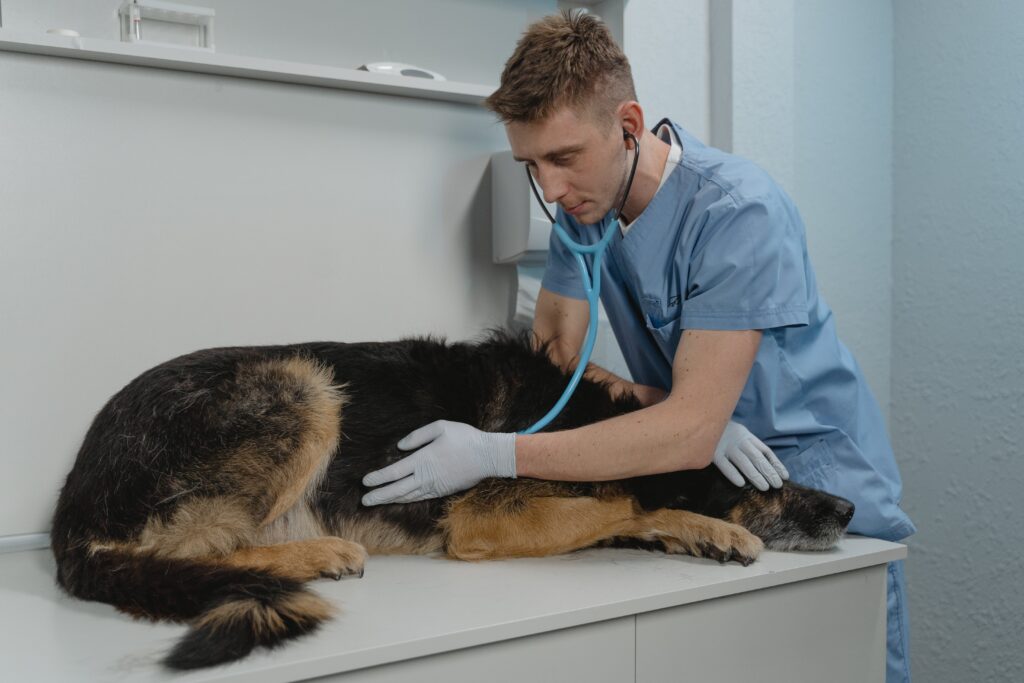As devoted pet owners, ensuring the health and well-being of our dogs is a top priority. While routine veterinary check-ups are essential for preventive care, emergencies can arise unexpectedly, demanding immediate attention. Recognizing the signs of a veterinary emergency and knowing when to seek professional help can be crucial in safeguarding your furry friend’s life. In this comprehensive guide, we’ll explore common situations that warrant emergency veterinary care and equip you with the knowledge to act swiftly in times of need.
- Difficulty Breathing:
One of the most alarming signs that your dog requires emergency veterinary care is difficulty breathing. If your dog is panting excessively, wheezing, or displaying labored breathing, it could indicate various serious conditions, including respiratory distress, choking, or heart failure. Immediate attention is crucial to address the underlying issue and ensure your dog receives the necessary oxygen and support.
- Trauma or Injury:
Accidents happen, and if your dog experiences trauma or injury, seeking emergency veterinary care is paramount. This includes incidents such as being hit by a vehicle, sustaining a fall, or engaging in a fight with another animal. Even seemingly minor injuries can hide underlying problems, and a prompt assessment by a veterinarian can prevent complications and alleviate pain.
- Ingestion of Toxic Substances:
Dogs are naturally curious, and their exploration often involves putting things in their mouths. Ingestion of toxic substances, such as certain foods, plants, medications, or household chemicals, can lead to poisoning. If you suspect your dog has ingested something harmful, do not wait for symptoms to appear. Seek immediate veterinary assistance, and if possible, bring the packaging or substance your dog ingested to aid in diagnosis and treatment.
- Seizures:
Seizures in dogs can be caused by various underlying conditions, including epilepsy, toxins, or neurological disorders. If your dog experiences a seizure, it is a medical emergency that requires prompt attention. During a seizure, ensure your dog’s safety by removing any nearby objects, and time the duration of the seizure. Contact your veterinarian or an emergency animal hospital immediately for guidance on the next steps.
- Persistent Vomiting or Diarrhea:
While occasional vomiting or diarrhea may not be cause for immediate concern, persistent or severe episodes can signal underlying issues such as poisoning, gastrointestinal obstruction, or infectious diseases. If your dog experiences repeated vomiting or diarrhea, especially if accompanied by lethargy, dehydration, or changes in behavior, seek emergency veterinary care promptly.
- Sudden Loss of Consciousness:
If your dog suddenly collapses or loses consciousness, it is a critical situation that demands immediate attention. Sudden loss of consciousness can be indicative of various issues, including cardiovascular problems, neurological disorders, or internal bleeding. Time is of the essence, and seeking emergency veterinary care can make a significant difference in the outcome.
- Bloated or Distended Abdomen:
A bloated or distended abdomen in dogs can be a sign of a life-threatening condition known as gastric torsion or bloat. This condition requires immediate veterinary intervention. Bloat can cause the stomach to twist on itself, leading to a blockage of blood flow and potential organ damage. Breeds with deep chests, such as Great Danes and Standard Poodles, are particularly susceptible, but any dog can be affected.
- Uncontrolled Bleeding:
In the event of uncontrolled bleeding, whether from an injury or a surgical site, immediate attention is crucial. Apply pressure to the wound using a clean cloth or bandage while en route to the emergency veterinary clinic. Severe bleeding can lead to shock and other complications, making prompt intervention essential for your dog’s well-being.
- Difficulty Urinating:
If your dog is struggling to urinate or appears to be in pain during urination, it could be a sign of a urinary blockage or infection. These conditions can escalate quickly and may lead to serious complications if left untreated. Seek emergency veterinary care to determine the cause of the issue and initiate appropriate treatment.
- Sudden and Severe Lameness:
While limping or mild lameness can sometimes be attributed to a minor injury, sudden and severe lameness may indicate a more serious problem such as a fracture, dislocation, or ligament tear. If your dog is unable to bear weight on a limb or shows signs of extreme pain, immediate veterinary attention is essential to assess the extent of the injury and provide appropriate treatment.
Conclusion:
Understanding when to seek emergency veterinary care for your dog is a critical aspect of responsible pet ownership. Your swift and informed action in times of crisis can make a significant difference in your dog’s prognosis and overall well-being. Always have the contact information for your regular veterinarian and the nearest emergency animal hospital readily available. Additionally, familiarize yourself with basic first aid for dogs to provide immediate care before reaching professional help. By being prepared and proactive, you can ensure that your beloved canine companion receives the timely and expert care they deserve, promoting a lifetime of health and happiness.
















